For most of 2010 through 2012, I was trying to figure out answers to these questions: Why are the American people so divided, and hostile to one another? How will we meet the many challenges we face when there is conflict among the people and gridlock in Washington?
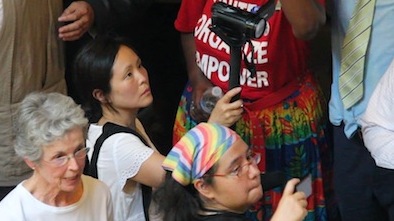
I worried at times that we were going to slide into deeper economic turmoil and perhaps even violence. I also feared that our division was aiding a gradual slide into plutocracy — governance by the elite, the super wealthy. In other words, we were being divided and conquered.
Years from now historians may note the irony that in January 2010 the Supreme Court ruled on the Citizens United case that opened the way for unlimited political spending by corporations during a period when the citizens were disunited, and locked in a culture war. Disunity may not cause plutocracy, but it enables it.
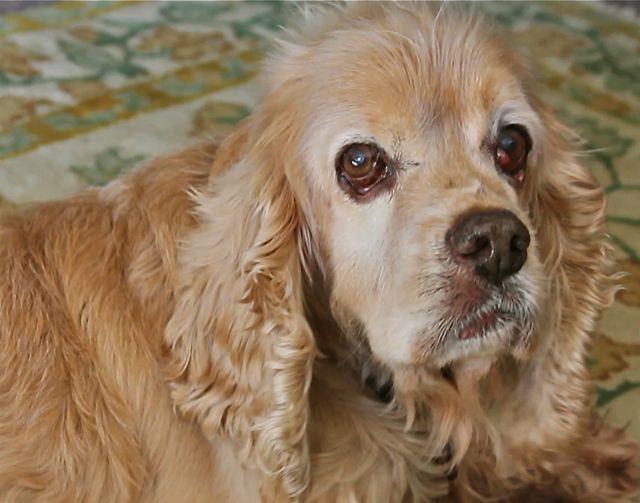
By the summer of 2012, I’d wake up with an unshakable urge to hit the road and just start talking to my fellow Americans. I could try to have the kinds of conversations that I thought we needed to have as a country. I wanted to understand better the nature of our division by learning more about our history, and by seeing how people are surviving in these trying times, hearing people’s personal stories, and sharing some of mine. I especially needed to know that I could talk to people of backgrounds and beliefs very different from my own.
In November 2012, Eric Byler and I set out on a journey across America with a video camera and my old cocker spaniel, Dudley.
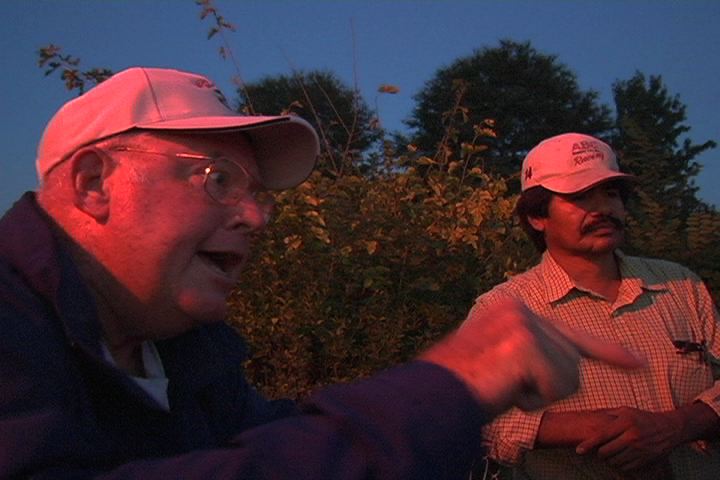 We had no idea that we would end up spending over a year on the road, the majority of that time in North Carolina.
We had no idea that we would end up spending over a year on the road, the majority of that time in North Carolina.
We started our filming on election day in Prince William County, Virginia, where our last documentary project, 9500 Liberty, was filmed.
In Prince William County, a swing county in a battleground state, we witnessed and documented five-hour lines at River Oaks precinct, the polling station with the most African American voters in the county. The scene there reminded me of a disaster area, with people forced to improvise after an unexpected catastrophe. Volunteers were distributing bottled water, food, and chairs hoping voters would not give up and go home.
I couldn’t believe that this could happen in America. During the next few months, we investigated the causes, and learned things that would haunt us as our journey continued.
News of the tragic massacre in Newtown on December 14th, shocked me and broke my heart, along with those of millions of Americans. Within days, our nation was engulfed in a hideous debate about gun safety, with people hurling insults at each other.
We decided to visit Newtown about a month after the shooting. In this idyllic American town that looks like the on-location set from It’s a Wonderful Life, we met people coping with unbearable grief compounded by the awfulness of being targeted by pro-gun advocates with hateful insults, bizarre conspiracy theories accusing them of staging their children’s deaths, and even threats of further violence if they continued speaking out. Despite these painful challenges, we saw incredible strength as the people of Newtown decided as a community to send a message of love Washington and to the world. Many delivered that message personally.
I was on the receiving end of some hateful comments after I wrote a an opinion piece responding to the arguments made by pro-NRA advocates in the wake of the tragedy. I was saddened by this, but like the Newtown families, I was not about to back down on the need for us to engage in dialogue.
Eric filmed my conversation with Larry Ward, gun rights activist and the founder of Gun Appreciation Day, outside the NRA’s first press conference after Newtown. This video of my attempts to engage Larry in a reasoned discussion about gun control went viral.
Larry argued that gun-free zones, like elementary schools, were foolish, comparing them to his own, fictional notion of “zombie-free zones.” If zombies attacked, he explained with earnest anxiety, “I’d be eaten!” His reference to zombies captured the spirit of the times. It seems some of us see others as something less than human — parasites with no redeeming economic or political value, or worse, as cheaters and criminals. With such visceral alienation from each other, no wonder there is so little unity among our people.
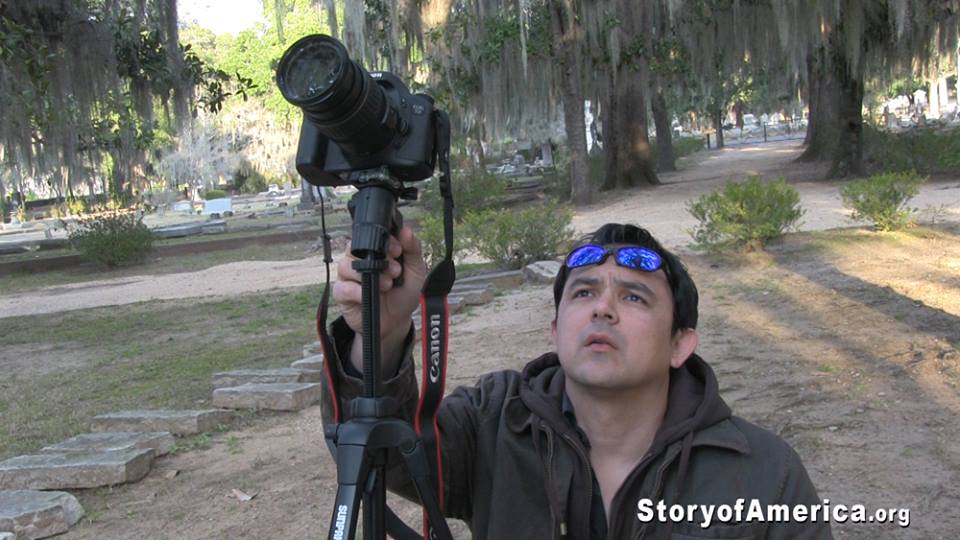 In the early months of 2013, we traveled to the deep South, into the heart of the divide. We spent time with the African American community and the white community in Selma, Alabama and saw how divided they were. Many people in this part of Alabama are direct descendants of former slaves and/or former slave owners. They knew which families had owned slaves, and how well, or not well, they had treated them.
In the early months of 2013, we traveled to the deep South, into the heart of the divide. We spent time with the African American community and the white community in Selma, Alabama and saw how divided they were. Many people in this part of Alabama are direct descendants of former slaves and/or former slave owners. They knew which families had owned slaves, and how well, or not well, they had treated them.
We met people who could point out the “hanging trees” in their neighborhood, or bring us to the slave grave yard. Some had scars from Bloody Sunday, when African Americans were beaten by police on the Edmund Pettus Bridge while attempting to march from Selma to Montgomery to demand access to voting in 1965. The images of the brutal beating were beamed around the country and it led to the public support for the Voting Rights Act which passed few months later.
Forty-eight years after the passage of the Voting Rights Act, in June of this year, the Supreme Court struck down a key provision of the law, which set the formula for which districts were required to get pre-clearance from the Justice Department before any changes to their voting laws could be enacted. The mandate for pre-clearance had protected minority voters in the South and other areas with a history of racial discrimination.
For many people, especially in the African American community, this decision was not only a regressive turn, but an aggressive attack on the power of the new electorate emerging in the South, and throughout America — a growing number of immigrants combined with African American voters, young people, and white progressives.
During the time we spent time with sons and daughters of Confederate veterans, we recognized how the two unreconciled stories about America, two readings of our history since the Civil War, contribute to the current cultural and political divide.
The conservative policies that are being proposed and discussed around the country share the same political foundation with the Confederate South, namely, the idea that state’s rights are superior to the federal government’s. Conservative arguments also build on the scars that remain from the Civil War in the South: the profound distrust of federal government, and the sense of being looked down upon by Northerners, and oppressed by the powers that be.
During our visits to North Carolina, which began in January, and increased in frequency starting in April, we realized that this state was ground zero for the struggle between the Old South and New South. Changes to voting laws, triggered by the Supreme Court’s decision, would end up being a pivotal battle. This is where we ended up spending most of 2013 documenting the struggle that ensued. I will have a lot more to say about North Carolina in an upcoming essay.
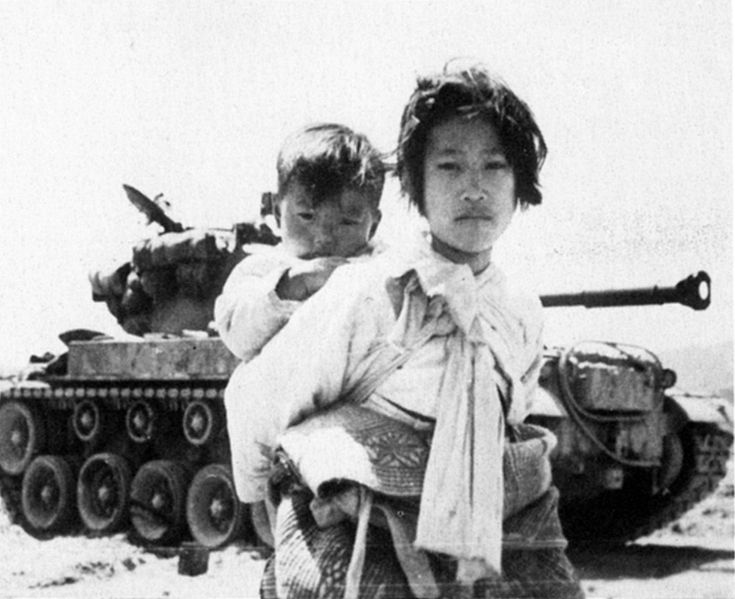 I must confess I am especially sensitive to division because I grew up in South Korea in the shadow of a war that took place 60 years ago. The Korean War left the country divided and in a permanent standoff. My family was violently shattered as a result of this war. Since my childhood was spent in the context of division and loss, I grew up longing for unity and abhorring war. I brought that part of my soul to America when I came here with my family at the age of 9.
I must confess I am especially sensitive to division because I grew up in South Korea in the shadow of a war that took place 60 years ago. The Korean War left the country divided and in a permanent standoff. My family was violently shattered as a result of this war. Since my childhood was spent in the context of division and loss, I grew up longing for unity and abhorring war. I brought that part of my soul to America when I came here with my family at the age of 9.
It seems that my beloved, adopted country, the United States, remains divided from its Civil War as well. These days, I go to sleep and wake up longing for unity for America and Korea.
Please support Story of America with a tax deductible donation.

So far so good! Your thoughts are amazing and I have no doubt in this. I personally Never believe mass media or even low standard writeups. You are amazing and thoughtful. Keep it up. Dr Mathew hall , I have a almost free offer just for you. https://goo.gl/qK5ZYZ